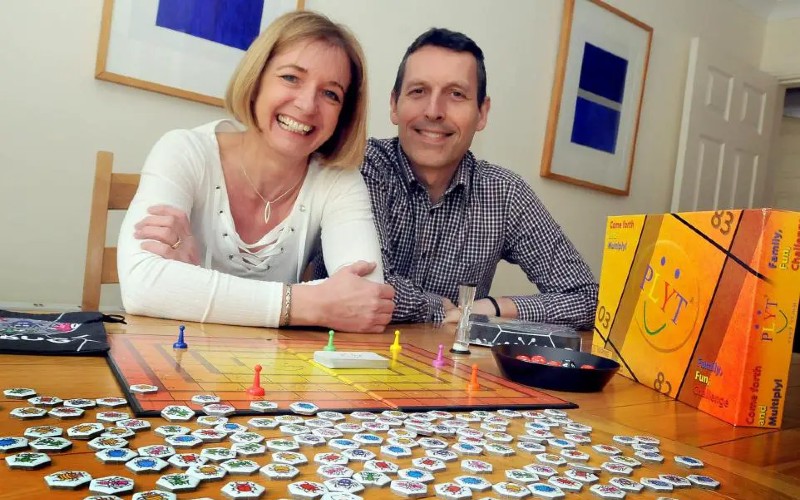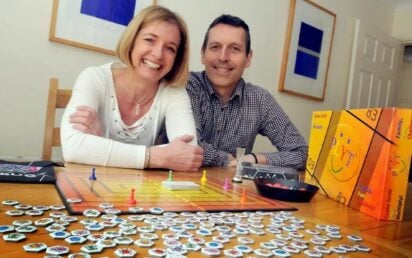Our series profiling companies from our Startups 2.0 lists continues with Ian McCartney, co-founder & CEO at Plytime Learning.
Plytime Learning, which featured on Manchester Startups 2.0, was founded by husband-and-wife team Ian and Lisa McCartney. When they found the maths homework their kids were bringing home was not fit for purpose, they took matters into their own hands… and when corporate director Ian fell seriously ill with Lyme disease, the enforced break would ultimately lead to the launch of the business.
The personalised learning and support platform for children includes 24/7 personalised practice, answer reviews, help videos, real-time performance tracking – with machine learning highlighting strengths and weaknesses – and tokens and rewards to motivate children to improve.
Additional one-to-one support can also be added via Focus Tutoring – a unique concept with sessions in 15-minute chunks, built around optimal attention spans, and proven by research to be 25% more cost-effective than traditional tutoring.
Ian shares its mission and the journey to date; explains what they would be looking for in an investor; and says they are also on the lookout for partners.
Describe your personal background prior to starting the business.
When our children were 5 & 7, we made a maths board game for them. Not because they were super-keen on maths but because they kept coming home from school with games and exercises that we’d all have to dumb down to; or the older one would always beat the younger one; and it usually didn’t end well. So we made our own.
It wasn’t long before the school saw the improvement. In the same year, I was bitten by a tick and became seriously ill with Lyme disease. At the time, I was a director at the Kellogg Company, and sat on the board of companies in Russia and Turkey, whilst Lisa was at home looking after the children. In 2012 I was forced to take some time off work to recover, and what started as a three-month break turned into two and a half years before I was well enough to return.
During that time, I couldn’t sit and do nothing – so I made some prototypes of the game that Lisa took into school. One thing led to another and despite having no experience in games, we ended up publishing the game, and it has since sold thousands of copies across the world.
That was the first time we started to really understand the huge impact of personalisation, competition and attention spans on attainment – it was the start of our journey to Plytime Learning.
What is the biggest challenge you have faced to date? How did you overcome this, or plan to overcome this?
The biggest challenge we’ve faced is bootstrapping the business, whilst trying getting across to people, particularly investors, that what we’re doing will take time and money.
We’re operating in a market that has historically low barriers to entry. Not only does that mean it’s flooded with competitors, all doing very similar things, it also creates an expectation amongst investors of early traction.
But we didn’t set up Plytime to add to those numbers. We set up Plytime to make learning more effective and more affordable and to do that requires something fundamentally different. And to build and then market something different requires investment and time.
We’re building in phases, with the first two now complete – develop & test the concept; prove the concept with external research – and we’re currently in the third phase, looking to build the team and product to exploit the competitive advantage we have.
To help us achieve that, we’re now looking for partners.
If you were making a birthday wish for your business, what would you ask for and why?
To find like-minded investors who can see the long term potential in what we’re trying to do, and want to make a positive difference. Investors who would support us to move from MVP to fully-functional product that not only works for them financially, but importantly improves the outcomes for millions of students.
And we’re not just looking for cash, although that would be nice, but for active investors who can offer valuable advice, contacts and support.
What benefits does being based in Manchester have for your company? How would you describe the tech scene there? What could it do better?
As someone who was raised in the North West, it’s great to be part of the tech scene in Manchester. There’s a huge amount of talent on our doorstep and we’ve also been fortunate enough to be on the Exchange programme at the Bonded Warehouse, and the NatWest Accelerator – both have been extremely useful and great to be part of.
Having said that, I still think work needs to be done on the investment front. Funding is still predominantly Southern focused and whilst it’s good to see progress being made in the North, it’s still a very small network. You tend to see the same faces time at all the events, and from speaking with other founders and investors themselves, it also appears more risk averse in the North.
Is there anything else you’d like to add?
We’re on the lookout for partners – companies which would like to either provide incentives for students and/or companies who would like to support their local communities and schools. We’re happy to provide more details, if there’s a way it can encourage further participation in the region.


